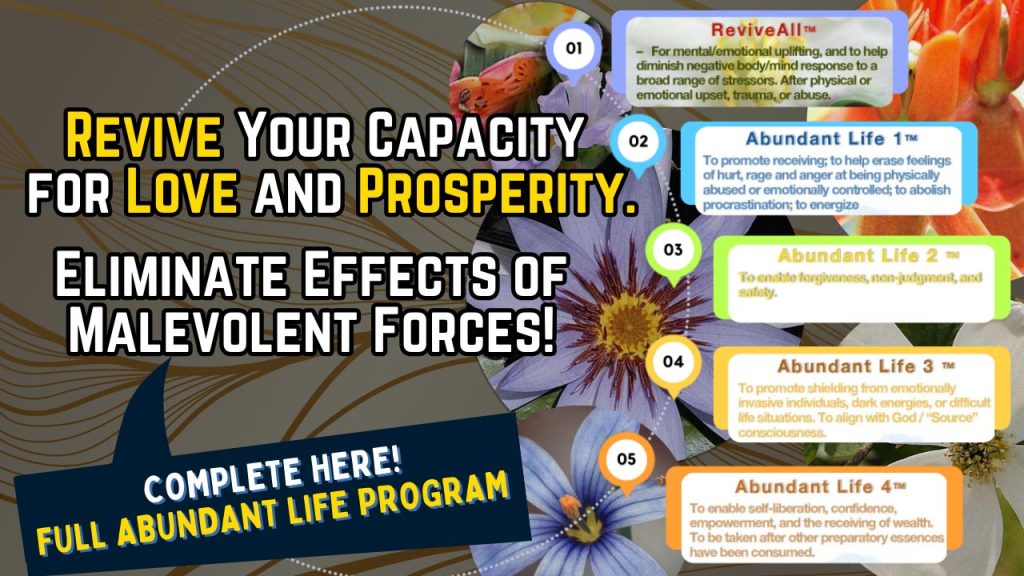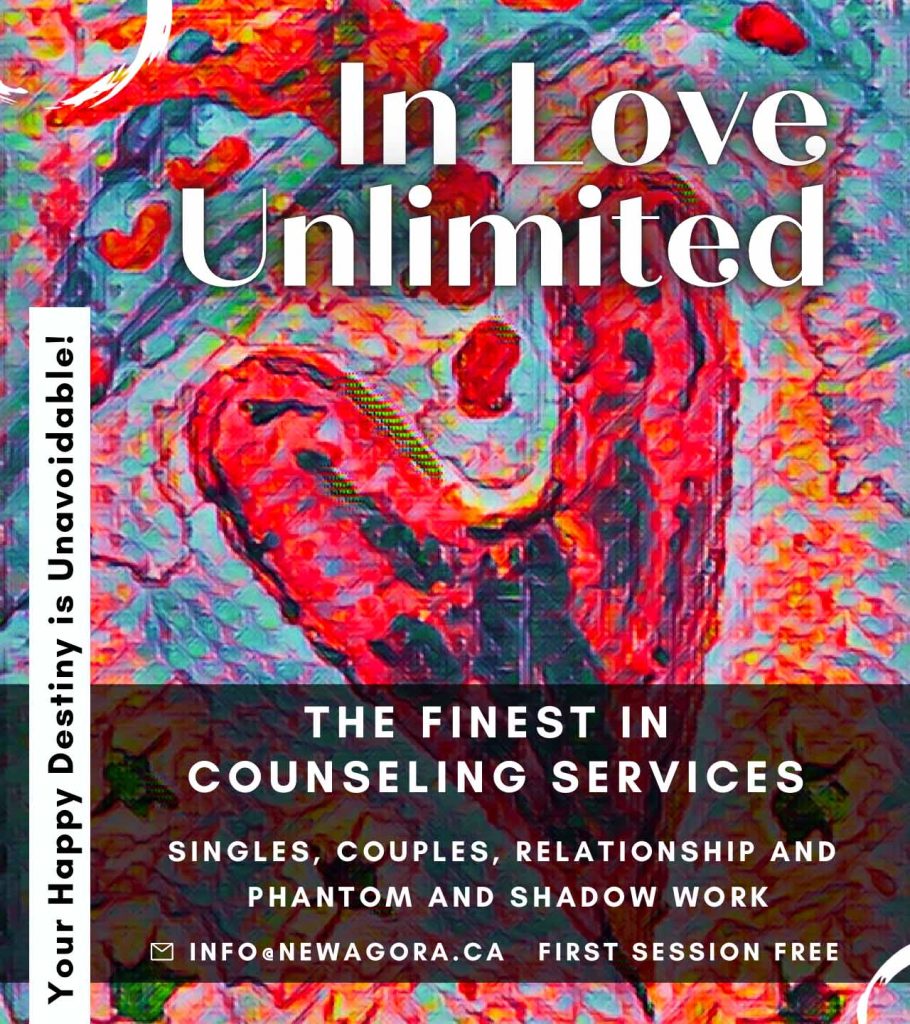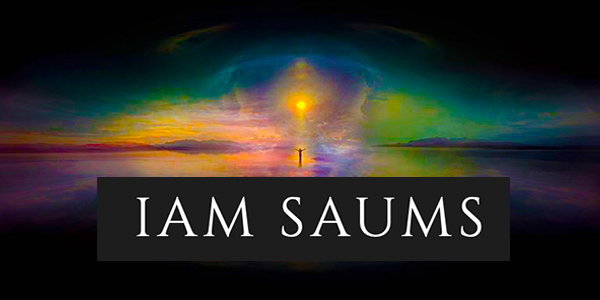Whose Side Are You On?
by Nowick Gray
Human-to-human communication is not about taking dictation, but speaking our minds. Not shutting down others, and not allowing others to shut us down. When we have to compete with a technological monolith, a central news conglomerate, a digital virtual world overlay, we have to go outside those channels and meet face to face, heart to heart, mind to mind.
Put down the devices and go meet around the campfire or barbecue. And don’t settle for regurgitated fake news when it infects your neighbor’s speech. In contentious conversation online, chances are your dissension from the party line will be randomly smeared as “racism” or “hate speech.” What those labels really mean is, your speech is not allowed; it’s you that are hateful, by definition—because you disagree with the authority, the hierarchy, the power over the mass.
In another’s live presence, the labels peel off and we’re more likely to connect on common ground. But meanwhile, that insatiable central power has neared its goal of total and permanent control, and it smells your blood. By holding out, you threaten its overriding purpose. You have indeed become dangerous.
Ironically, not long ago the labels were reversed from where we are today. Research in 2009 showed that “conservatives tend to support hierarchy and authority more than liberals do.” What a difference a decade makes.
These days, American patriots are vilified by self-identifying leftists for advocating the very freedom their nation was founded on. Nationalism itself has been judged as passé, a Trumpian cardinal sin. In its place, the new patriotism worships, I suppose, Davos, or the UN, the Gates Foundation, the WHO, the World Economic Forum—in short, the global authority for managing What Really Matters—whether that’s the endless War on Terror, the Climate Emergency, or the Killer Virus.
 Once entrusted with that sacred task, the ruling hierarchy claims impunity to use whatever means it deems necessary to achieve its aims. The Supreme Authority for Global Equality (SAGE) certainly cannot be blamed for taking full advantage of the opportunity posed by the window represented by Covid (as Klaus Schwab put it). Schwab’s gloating recalls Benjamin Netanyahu, who was quick to highlight the silver lining in the 9/11 events, the launch of an endless war against Israel’s enemies.
Once entrusted with that sacred task, the ruling hierarchy claims impunity to use whatever means it deems necessary to achieve its aims. The Supreme Authority for Global Equality (SAGE) certainly cannot be blamed for taking full advantage of the opportunity posed by the window represented by Covid (as Klaus Schwab put it). Schwab’s gloating recalls Benjamin Netanyahu, who was quick to highlight the silver lining in the 9/11 events, the launch of an endless war against Israel’s enemies.
The rulers can be secretive or in our faces, and either way remain smug in their supposed invulnerability. But the smoke and mirrors of their historical mystique is wearing thin. Truth is shining through, and they will hear it now rising to a roar, to their dismay.
Grow Your Own Mind
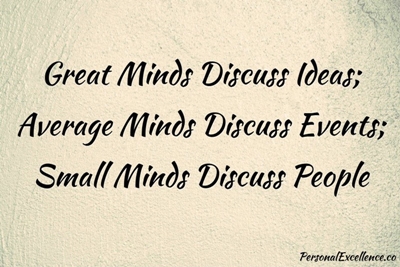 A few years ago, I head a quote which has been attributed to Eleanor Roosevelt: “Great minds discuss ideas. Average minds discuss events. Small minds discuss people.” Amid a plague of social media debates that invariably descend to (or are interpreted as) personal attacks, it’s apparent that our level of discourse has devolved and needs a reset. An internet search on the above quote led me to Celestine Chua’s excellent essay unpacking the three types of focus and advocating a more expansive view.
A few years ago, I head a quote which has been attributed to Eleanor Roosevelt: “Great minds discuss ideas. Average minds discuss events. Small minds discuss people.” Amid a plague of social media debates that invariably descend to (or are interpreted as) personal attacks, it’s apparent that our level of discourse has devolved and needs a reset. An internet search on the above quote led me to Celestine Chua’s excellent essay unpacking the three types of focus and advocating a more expansive view.
Chua isn’t saying some of us are better than others or have better minds. She is saying that each of us can operate from our small mind—limited in criticizing others or consuming packaged news—or we can seek higher ground and enlarge the scope of our concern. We can choose to focus on the actual issues instead of labels and personalities.
Chua outlines what is entailed: “Discussing ideas means not just taking what is presented to you, but digging deeper. Understanding root causes. Understanding how something came to be. Questioning realities. Identifying solutions.”
In the current toxic Facebook or Twitterverse, even such inquiry, offered as an antidote to division and an appeal to open exchange, would be branded as “alt-right” and thus dismissed by a person with the opposite agenda. Their aim, whether conscious or unconscious, is not to foster discussion, but to limit discussion in favor of the authority narrative, serving power and hierarchy.
Research by anthropologist Christopher Boehm shows that our propensity to default to hierarchical authority runs deep in our nature as primates: “When we don’t have the time, energy, inclination, or capacity to think carefully, we fall back on the notion that we should honor those with more power and prestige…. [Conversely,] when we can think clearly and at leisure, we are more likely to do so through the lens of equality.”
Overturning an entrenched power structure is no easy matter, for any primate society. Boehm outlines the dynamics at play and the options available:
‘If any one individual has the opportunity to climb the hierarchy, he or she is likely to seize it; unfortunately, as soon as power is gained, others resent it. In such a society, there are three potential outcomes. One is conflict, in which newcomers continually and overtly challenge the powerful for a position at the top. Another is stable dominance, where the powerful relentlessly and permanently dominate the rest. And a third is an equally stable social structure which Boehm calls “reverse dominance hierarchy,” in which those on the bottom of the pyramid figure out a way to band together and “deliberately dominate their potential master.” In such a society, dominance is still exercised. It just comes, collectively and consistently, from below.
…
‘Chimps, bonobos, and gorillas struggle to achieve stable reverse-dominance hierarchy. They can occasionally flatten their pyramids, but only briefly. The problem is that the powerful are likely to be strong, intelligent, and socially connected. To topple them, and prevent them from taking over again, you need a powerful and persistent threat, which nonhuman primates don’t have.
’Boehm finds that, to really maintain the new social order, the dominated need to trust one another. They must have stable social bonds and anticipate a long future together. Most important, they must be able to communicate effectively. To Boehm, therefore, there is something distinctively human about sustained equality: only human beings communicate well enough to keep it going for long periods.’
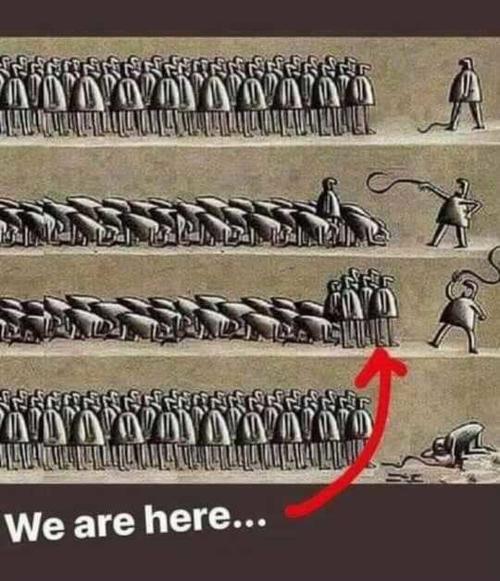
Quality communication emerges as the key to effective subversion of tyranny. Thus we see also the importance of propaganda and censorship for the ruling clique to counter resistance to their dominance. Additional pressure in the information war comes from the overload of input of all kinds, and in the distracting, isolating nature of social media and digital devices themselves.
‘If you’re at the top of a very hierarchical society and are absolutely determined to stay there, then you want three things. First, you want people to fear your power, so that they’re unwilling to risk toppling you. Second, you want to occupy people’s minds—and potentially, their bodies—so thoroughly that they’re mentally exhausted and oriented more toward hierarchy and authority than toward equality and justice. Finally, you want to make sure that those you dominate are unable to meaningfully communicate—or that, if they can, they are loath to trust one another in the long run. Division is your ally. Power wants the powerless to be scared, thoughtless, and alone.’ (Shamus Khan, When Does Equality Flourish?)
Real, two-way communication is empowering. It implies mutual respect between people of equal intrinsic value. That means all of us—however our attributes differ, before being dismissed and diminished with labels.
Labels for Dismissal
Full disclosure: Chua’s bio lists featured appearances in multiple mainstream news channels and government and business institutions. Yet taken at face value, her words meant as inspiration could be construed as radical or even dangerous in today’s ultra-polarized climate. Her bolded words—digging deeper, root causes, solutions—are calls to independent inquiry, analysis, and skepticism: thinking outside the box. On the basis of those seditious ideas alone, she would be branded a “conspiracy theorist” or worse.
Well, at least if she isn’t attacked by reputation or association, that’s a step in the right direction. But in the end, her ideas are decidedly provocative, if you’re defending authority at all costs.
Who is doing the dismissing of such ideas? Not just the liberal cheerleaders on Twitter or in the mainstream press, but friends I once respected for their “liberal” and progressive views. The way I knew them pre-covid was according to the first part of their new virtue buttons: “I have a healthy distrust of authority”; but lately they have shown themselves to betray that humanistic legacy with the bottom line of their mind-and-body, perhaps even soul, allegiance: “And I am vaccinated.”
Not About Me, Not About You
Returning to the question of focus—people, events, or ideas—if you favor authority, you will find a way to discredit or slander me, instead of addressing my ideas, facts or themes, the issues I raise. This typical diversionary ploy has a Latin tag: ad hominem, for an attack on the person instead of what that person is saying. Another folk saying gets it too: blaming the messenger.
Conversely, if I take issue with your point of view or policy, it is falsely perceived as a personal attack. This disagreement is not about me, and it’s not about you. It’s not about the who—the personality involved—but about the issues and policies we advocate and represent. Not about Biden or Trump, the Liberals or the Conservatives, woke or white, even left or right. These figureheads and labels distort and deflect the real argument, which comes down to tyranny or freedom.
When red-herring slurs such as fascist or nazi end up being applied to both sides, it’s a schoolyard shouting match instead of a useful discussion. But then, only one side really wants the discussion, anyway. And it’s not the gorilla at the top. As my father (self-identified “head of the household”) liked to announce, “End of discussion.”
Humans as long as we remain so will rightly ask, “Who gets to carve the watermelon?” Here again, the more useful and constructive answer is not about the who, but the why and how.
The Spell of Involuntary Servitude
While technology advances with quantum speed, human nature remains comically predictable. Witness Étienne de la Boétie’s 500-year-old tract, The Politics of Obedience: The Discourse of Voluntary Servitude (1553; free PDF download). The ancient Roman ploy of “bread and circuses” to spellbind the masses is well recognized: “Plays, farces, spectacles, gladiators, strange beasts, medals, pictures, and other such opiates, these were for ancient peoples the bait toward slavery, the price of their liberty, the instruments of tyranny. By these practices and enticements the ancient dictators so successfully lulled their subjects under the yoke, that the stupefied peoples, fascinated by the pastimes and vain pleasures flashed before their eyes, learned subservience as naively, but not so creditably, as little children learn to read by looking at bright picture books” (pp. 69–70).
Then as now, rulership rested not only on such strategies to mollify the masses, but also on a supporting cast (and class) of wannabe social climbers:
‘a hierarchy of subordinate allies, a loyal band of retainers, praetorians and bureaucrats… The hierarchy of privilege descends from the large gainers from despotism, to the middling and small gainers, and finally down to the mass of the people who falsely think they gain from the receipt of petty favors. In this way the subjects are divided, and a great portion of them induced to cleave to the ruler, “just as, in order to split wood, one has to use a wedge of the wood itself.” Of course, the train of the tyrant’s retinue and soldiers suffer at their leader’s hands, but they “can be led to endure evil if permitted to commit it, not against him who exploits them, but against those who like themselves submit, but are helpless.” In short, in return for its own subjection, this order of subordinates is permitted to oppress the rest of the public.’ (Murray Rothbard, introduction to Boétie, pp. 28–29)
Cue the present-day VaxPass playbook, wedging employers and shopkeepers into the enforcement gap. Some will comply grudgingly, by that administrative coercion; others will relish the role, as it enables a psychological transfer of their own abuse to the end user, lower on the chain of coercion.
James Joyce’s short story “Counterparts” illustrates the chain of abuse, whereby a browbeaten office worker takes out his frustrations at home on his youngest son. If one is too bamboozled or afraid to look above to break out of the cage, one remains trapped in its live-wired loop of underlying anxiety, separation, and un-groundedness.
Acknowledging the Real Fear
Conventional wisdom says fear of death from the killer virus drove herd compliance with draconian lockdowns, masks, and untested injections. Yet where is the fear of vaccine deaths? Not only is it absent from media coverage, in favor of the ever mounting covid “cases”; it is trumped by an overriding fear—of disapproval, of bucking authority, of rocking the political boat.
The real fear is of disobedience, especially now that the political boat is captained by pirates, relentlessly cracking the whip. Consequences in modern society are not only physical but legal, financial, social and psychological. So what is the most vital truth serum, to unseat this imposter ruling the roost with fear?
Betrayal—exposure of the lie. When the vax deaths, in our own experience, outnumber covid deaths, the risk/benefit equation is flipped. As John Manley reports, “A novel best-case scenario cost-benefit analysis [in Toxicology Report] showed very conservatively that there are five times the number of deaths attributable to each inoculation vs those attributable to COVID-19.”

Even when the covid side is grossly overestimated as shown in polling surveys, the growing number of personal acquaintances falling ill and dying will accumulate with visceral and emotional impact outweighing the media Wurlitzer virtual case numbers.

The ruling narrative, armed with its double layer of fear, inevitably breaks down when the authority behind it betrays the public trust so egregiously.
Breaking the Spell of Mass Hypnosis
Mattias Desmet delves into the psychological causes of our mass hypnosis (in Mass Formation and Totalitarian Thinking in This Time of Crisis) and identifies four endemic conditions of modern life:
- free-floating anxiety
- social isolation
- lack of sense-making
- a mechanistic worldview
Cast adrift and alone in this chaotic world, we crave order; and sadly, the stricter the better. Desmet suggests taking aim at the hypnotic spell with the arrow of humor, pricking the ridiculous, and the slingshot stone of speaking truth, which sets a wake-up example to those in the middle who are just going along to get along.
When it comes to actually sitting down (preferably live) to talk things over with our friends and family (those still open to discussion, that is), there is hope in taking a compassionate stance. David Charalambous (How to Effectively Wake Up Your Friends & Family) offers five key strategies for reestablishing meaningful connection, with the first item most critical:
- Occupy common ground.
- Use mainstream sources.
- Point out inconsistencies.
- Tell stories to illustrate what you want to say.
- Make reasonable statements and proposals, and logical arguments and conclusions.

To address the conditional causes of our collective hypnosis requires not only improved interpersonal communication, but a return to human values once embedded in our grounding and connection with nature. Personal and social meaning, which vanishes when that context is canceled by habit or fiat, ideology or technology, may be restored when we rediscover organic vitality in our lives.

That rediscovery, a reemergence of truly human being, is necessary not only as a shared movement but as an in-the-moment wakeup call for each individual. Max Igan (The Awakening is Growing) describes our collective cage as a “dark, occultist mirror of what it means to be human. You take everything natural and put a cage around it that is just a reflection of it. And the cage becomes more real than the natural world. And so people take to the cage. A lot of people prefer life in the virtual world to life in the real world.”
Look at what you believe, Igan says, when you don’t believe in yourself. The solution he points to, passionately and with elegant simplicity, is obvious:
- Believe in yourself.
- Remember who and what you are.
- Say what you feel.
Who Do You Trust?
 The sources our online sparring partners cite clearly show that despite their avowed “healthy distrust,” they continue to trust the mainstream media. They believe only “the news” delivered by official channels. They signal the virtue of their trust in the government, the medical system, the structure of authority, the system, the paradigm, the comfort of numbers.
The sources our online sparring partners cite clearly show that despite their avowed “healthy distrust,” they continue to trust the mainstream media. They believe only “the news” delivered by official channels. They signal the virtue of their trust in the government, the medical system, the structure of authority, the system, the paradigm, the comfort of numbers.
If they dig deep, the hole they dig is confined to the certified non-organic garden of the journalistic and social guardians, Big Tech and Big Pharma, fenced with virtual barbed wire. If they find root causes, they leave them buried for fear of what those bones and portents tell. It would mean the collapse of everything they stand for: order, meaning, community, social virtue.
Finally, they cannot countenance solutions beyond what is prescribed by the powers that be. That would undermine authority, and then what? Chaos would ensue. But when social chaos is orchestrated from above, the blinders are adjusted tighter and it’s called the “new normal,” all under control for the sake of “building back better.”
‘A radical transformation is already underway. It is not led by and does not serve the people. It is a technocracy managed and manipulated by stakeholder capitalists, globalist thinks tanks, inappropriately named non governmental organisations and philanthropic foundations.
‘The facade of democracy is maintained by “elected” governments. Their primary role is to foster the illusion of democratic accountability while forcing the policies of stakeholders upon us.’
—Iain Davis, Inalienable Rights
Maybe the question that should be asked is not so much “Who do you trust?” but rather, “Whose side are you on?”
We return to the primate band. The big guy’s on top, and that’s that. Are you gonna challenge him, take him on? Are you gonna ask me to join you, so he’s outnumbered? He’s got allies too. Oh, you have a weapon to use, from a distance? He’ll use a bigger one on you, more lethal.
So you go underground. You meet in secret with others. There’s a network building, various malcontents among the masses, muttering that the tyrant can fall.
Then who’s gonna be the new gang in charge?
Remember the equality that brought us together in resistance in the first place. Don’t forget it, or we’ll just raise another tyrant.
Ruling Class Rules
 The controlled bottleneck of mainstream news is the primary tool to keep the public misinformed and uninformed. As documented in a previous essay, David Martin exposed the plandemic strategy announced as early as 2014: “We need the media to create the hype and we need to use the hype to our advantage.” Elizabeth Woodworth dug deeper into the resulting media conspiracy, which went official under the rubric “Trusted News Initiative.”
The controlled bottleneck of mainstream news is the primary tool to keep the public misinformed and uninformed. As documented in a previous essay, David Martin exposed the plandemic strategy announced as early as 2014: “We need the media to create the hype and we need to use the hype to our advantage.” Elizabeth Woodworth dug deeper into the resulting media conspiracy, which went official under the rubric “Trusted News Initiative.”
The notorious CIA program to hack the media, Project Mockingbird, was unveiled in US congressional testimony back in 1975, and we can be sure they didn’t just say “Sorry” and give it up. Today the control of media content has become far easier under consolidation of corporate ownership, where six giants own 90 percent of news and entertainment outlets. Those six, in turn, like every other sector of today’s planet of apes, are controlled by the financial Alphas, BlackRock and Vanguard.
In short, the news—including whatever you try to search on Google, Facebook, YouTube, Wikipedia, or Snopes—is proudly brought to you by your ruling class.
I don’t even like to refer to the concept of class, since as a believer in human equality I see just another fiction to divide us. But when it comes to rulership of humanity by a tiny minority, self-identified as superior to the rest and deeming themselves of more value, I can accept the reality of the distinction. When it comes to the minions and followers and apologists of the ruling class, that’s when I become mystified and motivated to search for deeper understanding.
What makes an “equal” human support a leadership structure that enforces inequality?
It’s not just that they only follow fake news. They choose to only follow it, to “remain safe” from dangerous dissent. Today’s fake consensus is a neo-fundamentalism that brooks no challenge of its sanctified authority. As Stephen Wolinksky notes in The Tao of Chaos, the lure of fundamentalism—whether in religion, science, or political ideology—is to make everything simple, black and white, good or bad, so you don’t have to think anymore. That’s just too hard, too much work, too confusing, full of trouble.
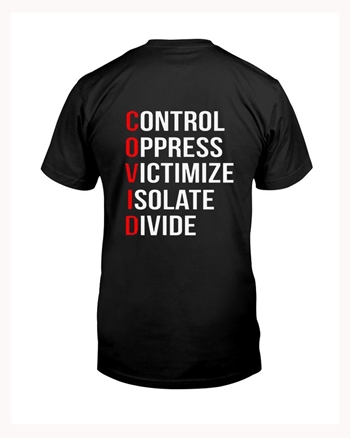 So, just follow the program. Journalism is the new bulwark of fundamentalism, it appears; but then, the big money always did control the big press. Today’s expansion into virtual monopolies of speech and information—Big Media and Big Tech—simply raises the ruling advantage, as was accomplished earlier with the innovations of radio and TV, and their ready use for hypnotic propaganda. And the new orthodoxy isn’t content simply with one-way messaging; unbelievers are to be excommunicated: censored and deplatformed, sued and defamed, gaslit and targeted, slandered and canceled. Or worse.
So, just follow the program. Journalism is the new bulwark of fundamentalism, it appears; but then, the big money always did control the big press. Today’s expansion into virtual monopolies of speech and information—Big Media and Big Tech—simply raises the ruling advantage, as was accomplished earlier with the innovations of radio and TV, and their ready use for hypnotic propaganda. And the new orthodoxy isn’t content simply with one-way messaging; unbelievers are to be excommunicated: censored and deplatformed, sued and defamed, gaslit and targeted, slandered and canceled. Or worse.
Those reverting to Mommy-and-Daddy Land are unconsciously motivated, perhaps; but then, so are we all subject to unconscious motivations. Conditioned by our past influences, reinforced by our channel choices with repeated confirmation. This isn’t “just like AI” in its self-reinforcing feedback loop; it is AI in operation—at Facebook and Twitter, Instagram and TikTok, Google and Amazon. While their algorithms and filters may be tailored to each consumer, a uniform narrative feed preselects “choices” flowing from the same unquestionable assumptions, ensuring ever tighter mental control. Ironically (and deviously) that very notion of mental control is preprogrammed to be dismissed from conscious acceptance: “just another conspiracy theory.”
Call it conspiracy or call it self-reinforcing, the result is the same: conformity with a ruling class agenda.
As proof that “ruling class” still has meaning as a political concept, consider George W. Bush, once mocked as an ignorant cowboy-king, now lauded as a statesman by his former political opponents—gracious in their own assumption of power, their turn at the wheel.
Like the kings of old, the top-shelf rivals are united in their hegemony over the peasants and workers of the world. They rely on support from the subordinate ranks of lawyers and lobbyists, judges and generals, media moguls and jaded journalists, academics and celebrity activists… all feeding from the spoils of exploitation.
Empire is blood; so own your portion of it. Set the vampires and zombies free to teach us of the trade in flesh and gold and guns, narcotics and funny money. Own your private throne, secured by your allegiance to power. If you’re on top now, hog that hoarded watermelon, or clutch your chunk doled out for favor. But remember, you’re outnumbered.
Further reading:
One Hundred Years of Servitude
Fifty Years Through Hell and Back: The Afghanistan Papers
https://www.globalresearch.ca/afghanistan-before-after-us-intervention/5756806
Ongoing Alternative News Updates
http://alternativeculture.com/quarantine-reading-list/
—
 Now available in one volume, Nowick Gray’s collected essays from The New Agora, 2019-21.
Now available in one volume, Nowick Gray’s collected essays from The New Agora, 2019-21.
Metapolitical: Practicing Our Human Future, by Nowick Gray
Facing an accelerating war on humanity, we break free of the narrative box of the old paradigm, and reject hierarchical power, for the sake of our sovereign human future.
Nowick Gray’s fiction and creative nonfiction crosses genre boundaries and bends categories, with unconventional characters on the margins of society, exploring the heart of nature and authentic human being (see NowickGray.com). Nowick is a regular contributor to The New Agora and also offers perspectives and resources for alternative culture and African drumming. He helps other writers as a freelance copyeditor at HyperEdits.com.
—
image credits:
(feature) Ben Franklin: imgrum.net
guess who: philosophers-stone.info
great minds: PersonalExcellence.co
we are here: Jim Quinn
risk/benefit: Jim Quinn
unsafe: Dr. Peter Breggin
explain: Kim Usbourne
choice: reddit
abuse: Vaccine Choice Canada
einstein: redbubble.com
tee shirt: teeol.com


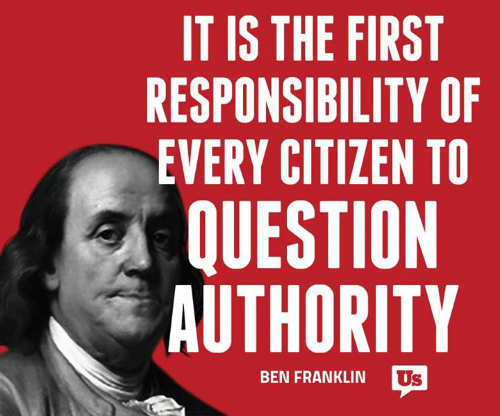
 nowickgray.com
nowickgray.com







